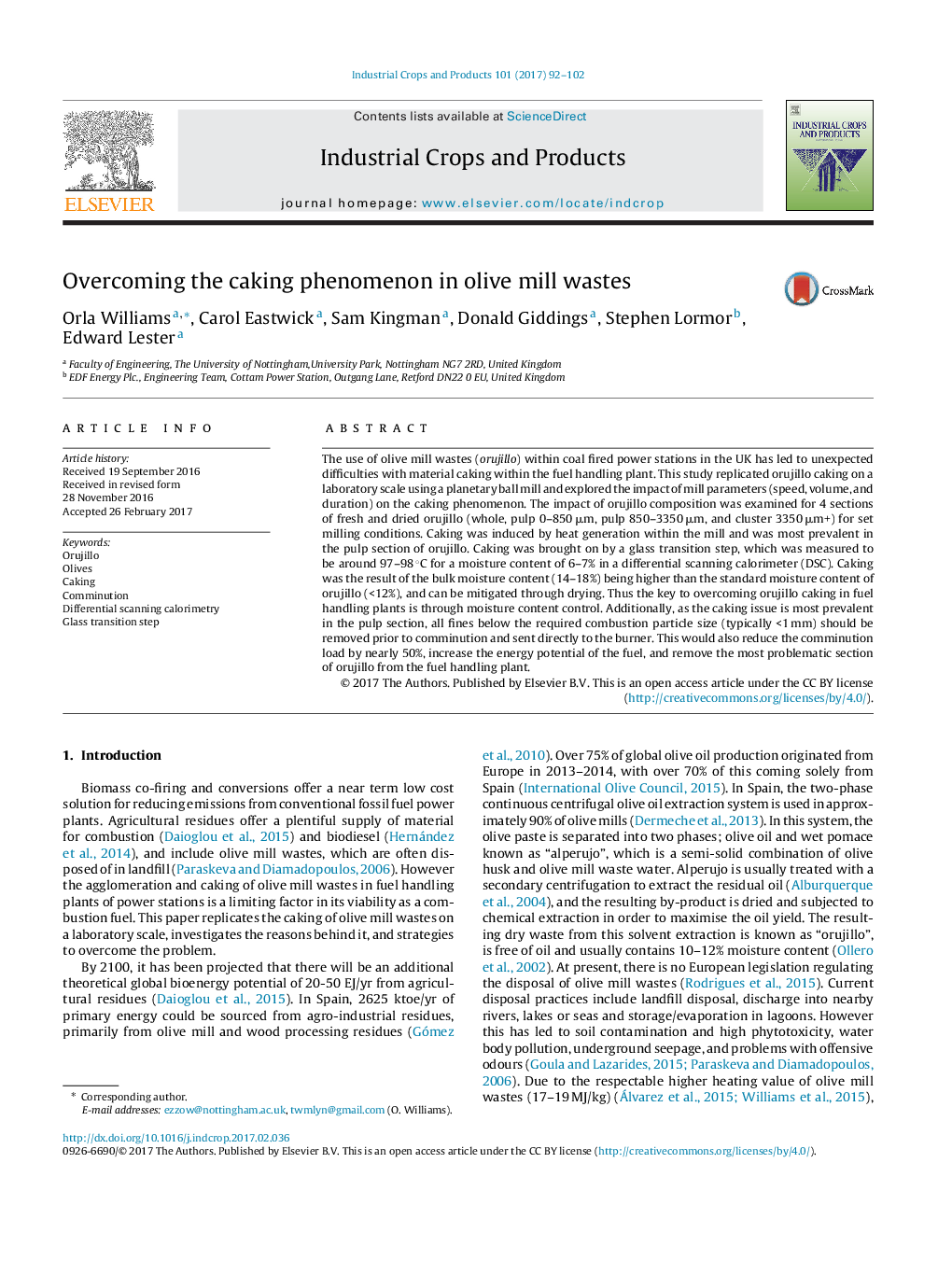| Article ID | Journal | Published Year | Pages | File Type |
|---|---|---|---|---|
| 5762136 | Industrial Crops and Products | 2017 | 11 Pages |
Abstract
The use of olive mill wastes (orujillo) within coal fired power stations in the UK has led to unexpected difficulties with material caking within the fuel handling plant. This study replicated orujillo caking on a laboratory scale using a planetary ball mill and explored the impact of mill parameters (speed, volume, and duration) on the caking phenomenon. The impact of orujillo composition was examined for 4 sections of fresh and dried orujillo (whole, pulp 0-850 μm, pulp 850-3350 μm, and cluster 3350 μm+) for set milling conditions. Caking was induced by heat generation within the mill and was most prevalent in the pulp section of orujillo. Caking was brought on by a glass transition step, which was measured to be around 97-98 °C for a moisture content of 6-7% in a differential scanning calorimeter (DSC). Caking was the result of the bulk moisture content (14-18%) being higher than the standard moisture content of orujillo (<12%), and can be mitigated through drying. Thus the key to overcoming orujillo caking in fuel handling plants is through moisture content control. Additionally, as the caking issue is most prevalent in the pulp section, all fines below the required combustion particle size (typically <1 mm) should be removed prior to comminution and sent directly to the burner. This would also reduce the comminution load by nearly 50%, increase the energy potential of the fuel, and remove the most problematic section of orujillo from the fuel handling plant.
Related Topics
Life Sciences
Agricultural and Biological Sciences
Agronomy and Crop Science
Authors
Orla Williams, Carol Eastwick, Sam Kingman, Donald Giddings, Stephen Lormor, Edward Lester,
